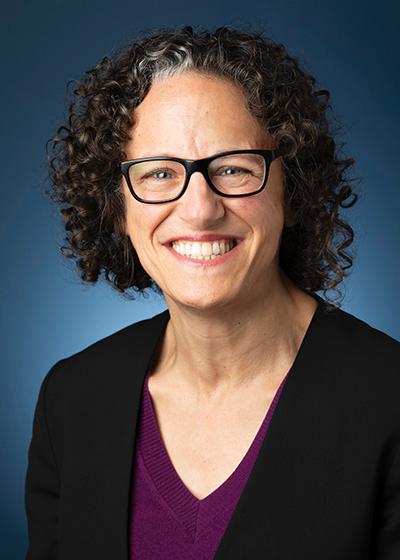New Social Justice Clinic Director Nurtured Public-Interest Passion at LLS

As the umbrella organization overseeeing LMU Loyola Law School’s array of 20-plus live-client clinical programs, the Loyola Social Justice Law Clinic (LSJLC) requires a leader who can support each individual clinic’s programmatic goals while also uniting them all around a common cause: cementing its status as Los Angeles’s premier training ground for law students seeking to advance social justice and serve the public interest. Thankfully, just such a leader has arrived: new LSJLC Executive Director Elizabeth Bluestein.
Hailing from Public Counsel, one of the largest public interest law firms in the world specializing in delivering pro bono legal services, Bluestein brings to the LJLC 15 years’ experience advancing the impact of a non-profit advocacy organization that aggregates a wide range of legal practices. Since starting at Public Counsel in 2004 as a directing attorney, Bluestein’s roles there included general counsel, vice president and, most recently, chief operating officer overseeing the organization’s programs, internal operations and finances.
And it all started at Loyola Law School.
After receiving her J.D. from Berkeley Law in 1993, Bluestein joined Sullivan & Cromwell to work on mergers and securities matters. Five years later, she moved to Gibson, Dunn & Crutcher’s tax department. “Tax law work is really fun and intellectually stimulating, especially partnership tax work,” Bluestein said. But she wanted something more personally fulfilling and began looking elsewhere.
Enter Loyola Law School. To identify what that something might be, Bluestein enrolled in the Nonprofit Organizations course with Professor Ellen Aprill, founder of the school’s Western Conference on Tax Exempt Organizations. “I loved the class, and of course, I loved her. She’s amazing,” Bluestein said.
Aprill’s course made all the difference when, soon thereafter, Bluestein interviewed with Public Counsel in 2004. “They started asking me questions about California nonprofit law and tax exempt organizations, hypotheticals from their real cases, and I could answer them because I had just finished Ellen’s course.” Public Counsel hired Bluestein to lead the Community Development Project, which provides corporate, tax and transactional legal services to nonprofits and small businesses and advocates for the development and preservation of affordable housing.
And with some help from Aprill, Bluestein also launched a Nonprofit Tax and Transactions Clinic as an adjunct professor at the law school, providing a forum for LLS students to help nonprofit clients incorporate and obtain tax-exempt status.
This introduction to legal clinical education had lasting impact. “It is important to ensure that students who are inspired to participate in our clinics can keep up the fight for justice through inevitable setbacks. This means training students in legal skills and ethics, and also in trauma-informed lawyering,” she said. “It means helping students recognize and celebrate incremental victories along the route to a larger goal. It also means modeling collaboration with other lawyers and with professionals in other disciplines, and ensuring that we have the right partnerships and staff to enable us to do so.”
In her new position at the LSJLC, Bluestein will not only oversee a growing list of live-client clinics that address everything from wrongful convictions and educational inequity to immigration relief and landlord-tenant issues. She will also be collaborating with LSJLC clinic directors, attorneys, social workers, investigators and support staff on developing a strategic vision and fundraising plan for the LSJLC. Bluestein’s installation as Executive Director thus begins the next chapter of the LSJLC’s growth into a powerhouse pro bono organization providing top-tier clinical legal education to future generations of public interest lawyers.